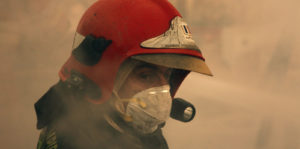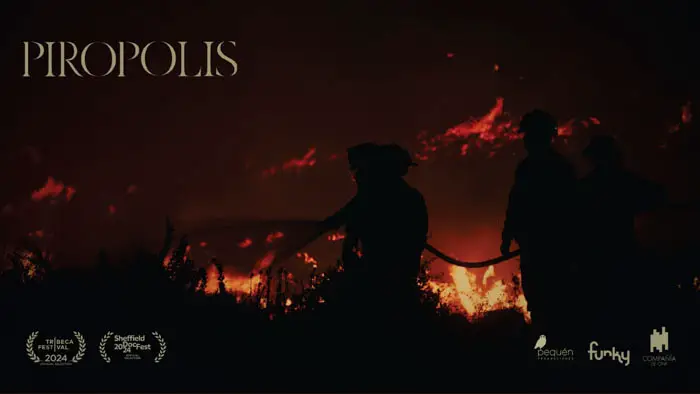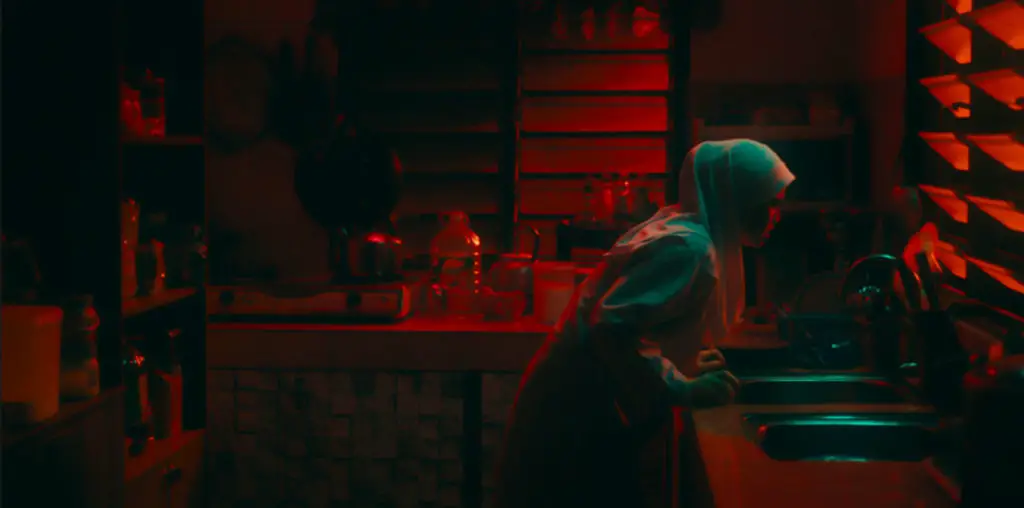
The first image we see in Nicolás Molina’s Pirópolis is a forest ablaze. It’s a familiar site for those who’ve watched the news in the past decade, but it never loses its poignancy. There’s perhaps no greater reminder of the dire state of our environment than the destruction caused by forest fires. Of course, there are additional metaphorical fires at play as democracy is threatened around the world by a rising tide of authoritarianism. These issues, both environmental and political, are front and center in Molina’s film.
The scenic Chilean port city of Valparaíso, like other urban centers of the nation, has undergone a period of unrest following several crises. On the periphery of this chaos lies the firefighting squad responsible for managing the surge in wildfires as well as preventing fires from the protests running rampant throughout the city. They’re an under-resourced fire department fighting an increasingly virulent rash of fires in the midst of organizational changes.
In many ways, Molina’s documentary is enamored with the pattern of life in the firehouse. In-depth discussions regarding the future brigades (with assistance from a French team of firefighters from Marseille) are frequent. The introduction of the first female recruits in the brigade force is also a focus for the filmmaker. While one’s mileage may vary with how engaging one finds these segments of the film, we’re never too far from the actual process of firefighting. The stunning imagery of burning forests is hard to shake, and few films get this close to the humbling power and speed of these fires.
“…carnage of the infernos in the mountains create a sense of urgency…”
Pirópolis doesn’t always feel cohesive. It often behooves a documentary filmmaker to stay as removed as possible from the subjects, but here, we seem to miss a guiding purpose. We’re given the barest of context for the intense protests roiling the city — more insight into the cultural specificities and how that plays into the current state of the fire brigade would have done wonders for drawing non-Chilean viewers into the film. Sometimes, less is more, but in this case, some handholding would be beneficial.
There will undoubtedly be plenty of viewers more attuned to the inner workings of Valparaíso and Chile at large who will appreciate the direction Molina takes with the film. They will find a sobering documentary that goes behind the scenes of what, at times, feels like a futile existence for these firefighters. The contrast between the images of the protests and the carnage of the infernos creates a sense of urgency for the spectator. Maybe the more significant focus for all of us should be the looming environmental crisis, and at its best, Pirópolis instills this sense of urgency.
It’s getting bad out there, and there will be more films like Pirópolis coming because, frankly, there has to be. As I write this, the eastern seaboard is engulfed in an extended, oppressive heatwave that feels anything but routine. If the warnings of environmental scientists aren’t enough to affect change, perhaps films like this can.

"…stunning imagery of burning forests is hard to shake..."


